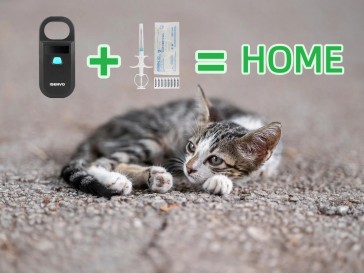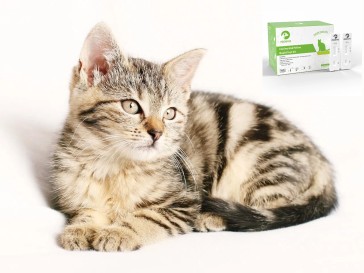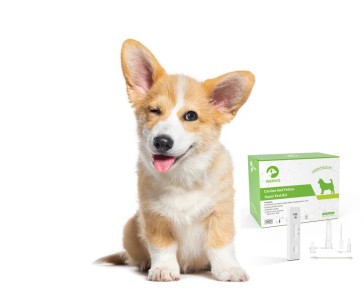The First Line of Defense for Feline Health: A Complete Guide to FIV/FeLV Combo Testing and the Value of At-Home Screening
Blog
-
-
-
-
Categories: Animal Health
The advantage of the GIA rapid testing kit is not just its speed, but the improved decision-making quality, increased treatment accuracy, and paradigm shift in health management brought about by this time compression.
-
Categories: Animal Health
If I get lost, how do I get home?
Methods for your pet to find its way home. -
Categories: Animal Health
This is precisely the significance of implantable pet microchips—they are not tracking devices from science fiction, but a permanent, non-removable digital ID tag.
-
Categories: Animal Health
Scanning a video may seem like a small act, but it embodies responsibility and care—let technology silently protect us, and let every identification connect us with peace of mind.
-
Categories: Animal Health
He just seems a bit lethargic sometimes and has a minor skin issue. It's probably nothing, right? — Many pet owners might have thought this, until the problem becomes serious.
-
Categories: Animal Health
As pet parents, our greatest wish is for our furry companions to stay healthy and happy by our sides for as long as possible. But they are born unable to speak and cannot tell us where it hurts. Often, by the time they show obvious signs of illness, the condition may have already been developing for a while.
In this situation, pet home test kits act like an extension of our "eyes" and "ears," serving as the first line of defense for their health. They are more than just a product; they represent a new, responsible philosophy of pet care.
Part 1: Breaking the Communication Barrier: Turning "Guesswork" into "Insight"
We've all experienced these worries:
-
The cat didn't eat much today—is it being picky, or is it unwell?
-
The dog is urinating frequently and the color l
-
-
Categories: News
The moment you pet your furry friend, a wonderful physical and mental transformation begins.










